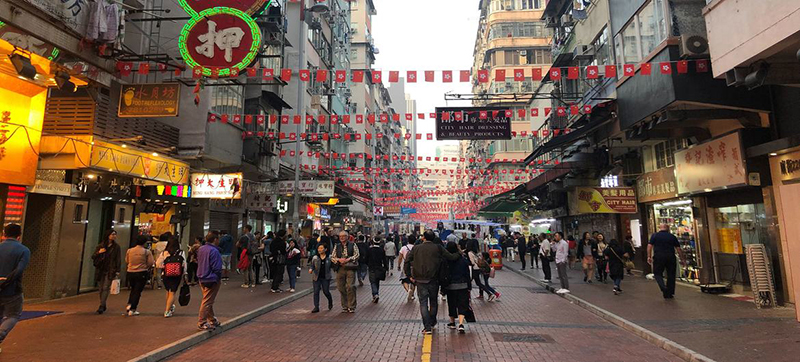 Hong Kong
Hong Kong Hong Kong: Rushed adoption of new security law a ‘regressive step’, says UN rights chief
The accelerated adoption of a national security bill in Hong Kong represents “a regressive step” for human rights there, the UN High Commissioner for Human Rights said on Tuesday.
“It is alarming that such consequential legislation was rushed through the legislature through an accelerated process, in spite of serious concerns raised about the incompatibility of many of its provisions with international human rights law,” Volker Türk said in a statement deploring the move in the former British colony which has been a Special Administrative Region of China since 1997.
More crimes added
The Safeguarding National Security Bill expands on the Law on Safeguarding National Security, passed by China in 2020.
Known locally as Article 23, it was debated over just 11 days, according to international media reports.
The law introduces five additional categories of crimes, described as treason, insurrection, offences in connection with state secrets and espionage, sabotage and endangering national security, and external interference.
Potential for misuse
Mr. Türk stressed that broadly defined and vague provisions in the Bill could lead to the criminalization of a wide range of conduct protected under international human rights law, including the freedoms of expression and peaceful assembly, as well as the right to receive and impart information.
“This ambiguity is deeply troubling, given its potential misuse and arbitrary application, including to target dissenting voices, journalists, researchers, civil society actors and human rights defenders,” he said.
“As we have already seen, such provisions readily lead to self-censorship and chilling of legitimate speech and conduct, in respect of matters of public interest on which open debate is vital.”
He added that under the Bill’s “external interference” provisions, the broad definition of what constitutes “external force” could have a further chilling effect on engagement with human rights organisations and UN human rights bodies.
“For such important legislation, with a significant impact on human rights to be passed without a thorough process of deliberation and meaningful consultation is a regressive step for the protection of human rights in Hong Kong,” he said.
Support Our Journalism
We cannot do without you.. your contribution supports unbiased journalism
IBNS is not driven by any ism- not wokeism, not racism, not skewed secularism, not hyper right-wing or left liberal ideals, nor by any hardline religious beliefs or hyper nationalism. We want to serve you good old objective news, as they are. We do not judge or preach. We let people decide for themselves. We only try to present factual and well-sourced news.







